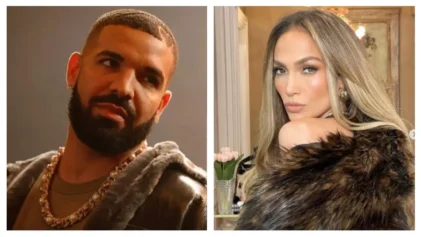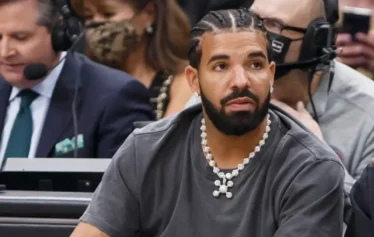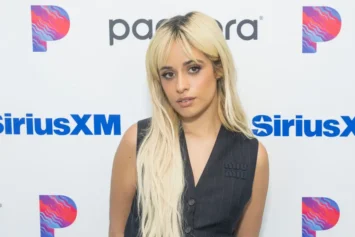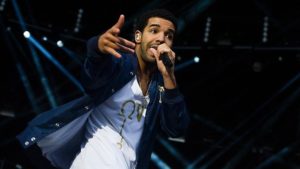
That was the massive claim Drake made on his track “Legend” from his latest project If You’re Reading This It’s Too Late. While it may have seemed like an empty declaration to some, the young rapper is backing up those claims by reaching a major Billboard milestone, making a mark in hip hop history and conquering the unusual obstacles that rap stars face when it comes to finding lasting success in the music business.
Drake’s surprise album was intended to be a free mixtape, according to reports from Billboard, but when Drake decided to drop the project on iTunes with a price attached to it, it officially qualified as an album. This placed the 28-year-old rapper in the running to prove his self-proclaimed legendary status.
The album debuted at No. 1 on the Billboard 200 and pushed 10 of the tracks on to the Hot 100 chart.
Combined with his recent hip hop features, the total comes up to 14 songs all resting in the Hot 100 at the same time, tying him with the Beatles who had the same number of hits on the Hot 100 at the same time back in 1964.
While some people have been quick to suggest that it’s easier for artists to get songs on the Hot 100 today, that argument falls flat considering the fact that nobody has managed to match the Beatles’ record in more than 50 years—even with the new Nielsen ratings formula.
Drake’s accomplishment also stands out for the fact that he managed to get 14 hip hop hits on the Hot 100, a chart that has been difficult for many rappers to land on at all.
There are notable differences between Drake’s record when compared to that of the Beatles.
Drake’s highest ranking hit was his feature on Nicki Minaj’s “Only,” which landed at number 16.
The Beatles, on the other hand, managed to not only claim the number one spot but they also dominated the top 10 slots with a total of five songs in the top 10.
For those who keep up with the Billboard charts, this comes as no surprise since rock and pop are two highly favored genres on the chart as opposed to hip hop and rap.
Internet trolls have also taken jabs at the record claiming it shouldn’t count since four of the tracks were features and not Drake’s song alone.
As Billboard pointed out, however, the Beatles came to musical prominence during a time when the music industry was “largely devoid of featured billings.”
This is perhaps the most key difference between the two records and precisely why Drake and the Beatles should not be compared to one another simply because they hold the same record.
Both Drake and the Beatles have proven their musical prowess, but they also belong to two completely different generations of listeners and two different eras for the music industry.
Matching the Beatles’ record is not a sign that Drake and the iconic rock band are equals, but instead shines a light on Drake’s ability, as a Black rapper, to achieve what a group of white men did 51 years ago despite the fact that Drake is performing in the disadvantaged genre.
Black art like hip hop has been cheapened and devalued as consumers have managed to get free access to this music in ways that wouldn’t count towards Nielsen ratings at all.
These trends have caused hip hop album sales to plummet at an exponentially higher rate than record sales for other musical genres.
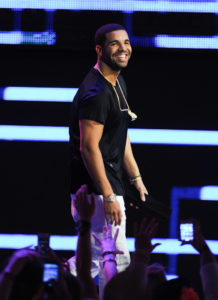
If You’re Reading This It’s Too Late had every single track land on the Billboard chart for R&B/Hip-Hop.
This makes his simultaneous total for the Hot R&B/Hip-Hop Chart a record-breaking 21.
Drake also became the first rapper to ever top the Billboard Artist 100 chart, beating out pop stars like Taylor Swift, Maroon 5 and even the 2015 Grammy favorite Sam Smith.
Drake also has an impressive 85 tracks that have appeared on the Hot 100, ranking him at number 5 for artists with the most Hot 100 hits.
He is only beat by Elvis Presley, James Brown, Lil Wayne and the cast of Glee, which means he has already recorded more Hot 100 hits than Jay Z, Ray Charles, Elton John and, yes, the Beatles.
So despite naysayers trying to downplay the hip hop star’s accomplishment, it’s clear that the rap star is blazing trails not only in hip hop but in the music industry as a whole.
His four features only prove that even without his own album out he remains at the top of musical relevancy and his inability to dominate the Top 10 is a reminder that even when hip hop music becomes a culturally appropriated commodity, the devaluation of Black art makes it seemingly impossible for hip hop to climb to the top of the mainstream music totem pole.
